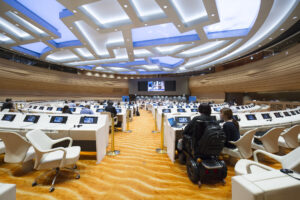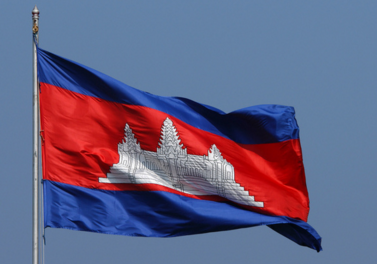
Nov 27, 2017 | News
Today, the ICJ called on the Royal Government of Cambodia (RGC) to end the escalating repression of civil society in Cambodia and reverse the rapidly deteriorating rule of law and human rights crisis in the country.
Yesterday, it was reported that Prime Minister Hun Sen called for the shut down of one of Cambodia’s leading, independent NGOs, Cambodian Centre for Human Rights (CCHR), and directed the Ministry of Interior to investigate CCHR for its alleged engagement with “foreigners”.
The Prime Minister’s statement appeared to allude to alleged involvement of CCHR in a supposed foreign-backed “colour revolution” to overthrow the government.
“The Cambodian Center for Human Rights plays an essential, independent role in promoting and protecting human rights in Cambodia and must be able to continue its important work without fear of retaliation, reprisal or other unjustified interference,” said Kingsley Abbott, the ICJ’s Senior International Legal Adviser for Southeast Asia.
“Everyone has the right to form and participate in organizations established to work on human rights, and States have a corresponding duty to protect the ability of such organizations and their participants to carry out their work to promote and defend human rights,” he added.
This latest development comes amidst a severe clampdown by the RGC on perceived dissenting voices including civil society, activists, the independent media and political opposition including through the recent dissolution of the major opposition party, the Cambodia National Rescue Party (CNRP), in what appeared to be a highly politicized Supreme Court proceeding, and the arrest and detention of its leader, Kem Sokha.
“This new, targeted focus on the Cambodian Center for Human Rights by the Government should make it clear that the human rights and rule of law crisis gripping Cambodia is not showing any signs of abating and requires the urgent attention of the international community,” said Abbott.
“All legal, political and economic options should be on the table,” he added.
Contact
Kingsley Abbott, Senior International Legal Adviser, ICJ Asia Pacific Regional Office, t: +66 94 470 1345, e: kingsley.abbott(a)icj.org
Background
CCHR was founded by Kem Sokha in 2002 before he left the organization in 2007 to pursue a career in politics.
Yesterday, CCHR released a statement “reaffirming its absolute non-partisanship and independence from all political parties” and emphasizing “strict independence” as a core value of its organization. CCHR also asserted in its statement that an “independent and impartial investigation would find no wrongdoing whatsoever on the part of the organization” and called for “meaningful dialogue” with the RGC.
Articles 19 and 22 of the International Covenant on Civil and Political Rights (ICCPR), to which Cambodia is a State Party, guarantees the rights of all persons to freedom of expression and opinion and to freedom of association with others.
The UN Declaration on Human Rights Defenders, adopted by a consensus of States at the UN General Assembly, including Cambodia, affirms the right of everyone to form and participate in NGOs to promote and protect human rights. The Declaration further dictates that states should take all necessary measures to protect human rights defenders from retaliation and other forms of arbitrary action as a consequence of their legitimate work.
On 18 October 2017, the ICJ released a report which found that the RGC was increasingly “weaponizing” the law to restrict dissent and attack democracy. The report recorded that the “single largest problem facing the Cambodian justice system is the lack of independent and impartial judges and prosecutors,” which includes “an endemic system of political interference in high-profile cases and an equally entrenched system of corruption in all others”.
On 23 October 2017, the 26th anniversary of the 1991 Paris Peace Conference on Cambodia, the ICJ, together with 54 other organizations, issued an open letter to the United Nations Secretary-General and the Conference’s co-chairs calling for the reconvening of the members of the Conference and other concerned stakeholders for an emergency summit to address the human rights crisis in the country.
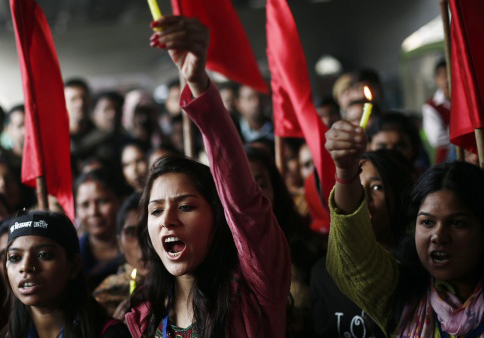
Nov 25, 2017 | Multimedia items, News, Video clips
Over the last year, since 25 November 2016, the ICJ has published a series of (video) profiles introducing the remarkable work of ICJ women Commissioners and Honorary Members.
“The ICJ has a strong focus on the struggle to eliminate violence against women. It is supporting the judiciary, independent civil society organizations and women’s rights defenders, in their work to promote international standards, ensure that victims are made visible and that States understand their responsibilities and obligations. At the same time, the ICJ provides much-needed judicial education on gender-based violence,” said Justice Radmila Dragicevic-Dicic, ICJ Commissioner, member of ICJ’s Executive Committee, and Justice of the Supreme Court of Serbia, on the occasion of 25 November, International Day for the Elimination of Violence against Women.
ICJ Commissioners have been at the forefront of the work to reform justice systems to make it easier for women to take cases of domestic violence to the courts, to punish perpetrators of rape and sexual assault as a war crime, to challenge discriminatory religious and family laws and to support victims of human trafficking and forced prostitution.
The ICJ has also supported judicial training programmes on access to justice for women. In 2016, the ICJ, in collaboration with UN Women, hosted a workshop for representatives from the judiciaries of Indonesia, Philippines, Timor Leste, and Thailand.
The participants of the workshop developed and adopted the Bangkok General Guidance for Judges in Applying a Gender Perspective.
In follow up, for example, the Supreme Court of Indonesia has now issued a Regulation based on the General Guidance, requiring judges to apply a gender perspective as they consider cases before them that involve women’s human rights.
Working in partnership with other organizations and the UN, the ICJ and its Commissioners will continue to work to ensure justice for women and to end gender-based violence.
The video interviews of ICJ women Commissioners and Honorary Members can be accessed here:
Justice Radmila Dragicevic-Dicic has worked on issues of organized crime and human trafficking. In the Serbian Constitution, human trafficking is now categorized as a crime against humanity and is taken very seriously. Radmila highlights the importance of ensuring the non-punishment, safety and protection of victims as well as their right to access compensation.
Prof Jenny Goldschmidt is a former President of the Equal Treatment Commission of the Netherlands and has combined academic research with practical work, with a particular focus on non-discrimination and the concepts of equality. She considers it is vital to take cases to the Treaty Bodies and courts everywhere to establish severe measures against discrimination and domestic violence.
Asma Jahangir is an Honorary Member of the ICJ, and the co-founder of Pakistan’s first all female law firm. She worked on a number of landmark cases including on issues such as whether women could get married without their father’s permission, be entitled to family maintenance or whether women should be judged according to religious law.
Imrana Jalal is a human rights lawyer and gender specialist in the Asian Development Bank in Manila. Imrana helped draft and negotiate the passage of the ground-breaking Fiji Family Law Act, which took twelve years to pass. She considers that in the area of family law, some progress has been made but it is hard because it is based on the premise that women have an equal right to property and this directly confronts social norms.
Hina Jilani is an advocate of the Supreme Court of Pakistan and served as the first UN Special Representative on Human Rights Defenders. She considers domestic violence in Pakistan as a major problem. Although the Pakistani judiciary is traditionally very conservative, Ms Jilani considers there has been progress because women’s rights advocates present cases in such a way as to make the social inequalities and injustices apparent.
Justice Sanji Monageng is a member of the International Criminal Court. She considers that the ICC has not done very well in prosecuting sexual and gender-based violence so far. The new Chief Prosecutor, Fatou Bensouda, has created a policy on sexual violence and gender issues, establishing a dedicated unit. She says is it evident in the cases that now come before her, there is a lot more attention being paid to sexual violence.
Karinna Moskalenko is a Russian lawyer and a founder of the International Protection Centre in the 1990s after Russia had ratified the Optional Protocol to the ICCPR. She explains her work to support women who are much more vulnerable than men, particularly because of the problem of domestic violence.
The former ICJ Vice-President Michèle Rivet was the first President of the Quebec Human Rights Tribunal from 1990 and until 2010. For Michèle, those who work in the field of human rights form a global village and have a duty to help women victims of violence: “we must all walk together on the long march to equality.”
Prof. Leila Zerrougui is Algerian and has served at the Algerian Supreme Court. She worked in the DRC as part of the UN Stabilization Mission and was Special Representative of the Secretary General for Children and Armed Conflict. In the DRC, she established mobile criminal justice system, with an investigator, prosecutor and a mobile court and prison in every Province. In this context, she explained how rewarding it was to see a colonel taken to the village where he and his soldiers had raped women to face justice there.
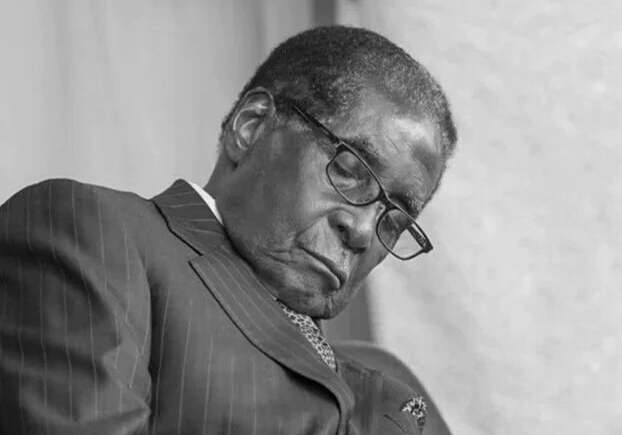
Nov 24, 2017 | News
As Zimbabwe prepares to swear in Emmerson Mnangagwa following the resignation of long time Zimbabwe President Robert Mugabe, the ICJ today called on the incoming authorities to immediately act to restore the rule of law and ensure the full observance of human rights in the country.
“As the events of the past few days propel Zimbabwe away from decades of authoritarian rule replete with human rights violations, the incoming administration must side with the people of Zimbabwe and seize this unique opportunity to ground its governance in the rule of law,” said Arnold Tsunga, Director of ICJ’s African Regional Programme.
The ICJ indicated that it is particularly concerned at the intrusion of armed forces in the political process and governance, which is prohibited by the Zimbabwean Constitution and contravenes core rule of law principles concerning the respective functions of the military and civilian authorities.
Emphasizing that the rule of law and respect for the national Constitution remain paramount even as Zimbabweans decide on their future, the ICJ called on the Zimbabwean National Army (ZNA) to refrain from any further activity that intrudes into functions of governances that are within the proper purview of civilian authorities.
“It amounts to setting a dangerous precedent for Zimbabwe and the region to allow or excuse such incursions at the whim of armed forces,” Tsunga added.
Under the African Charter on Democracy, Elections, and Governance adopted by African Union Member States, Zimbabwe is required to “institutionalize constitutional civilian control over the armed and security forces to ensure the consolidation of democracy and constitutional order”.
The ICJ further expressed concern at emerging reports of usurpation of police duties by the ZNA, which has allegedly carried out a series of arbitrary arrests and detention of civilians.
“Due process guarantees and fair trial rights are particularly vulnerable when armed forces decide to assume police functions,” Tsunga said.
Recalling that international law does not allow or encourage impunity for serious human rights violations that constitute crimes, such as torture and extra-judicial killings, the ICJ stressed the importance of ensuring accountability for human rights violations as Zimbabwe transits to into a new era of governance.
Contact:
Arnold Tsunga, ICJ-Director Africa Regional Programme, t: +27716405926, or +254 746 608 859 ; e: arnold.tsunga(a)icj.org
Solomon Ebobrah, Senior Legal Advisor, ICJ Africa Regional Programme, t: +234 8034927549 ; e: Solomon.ebobrah(a)icj.org
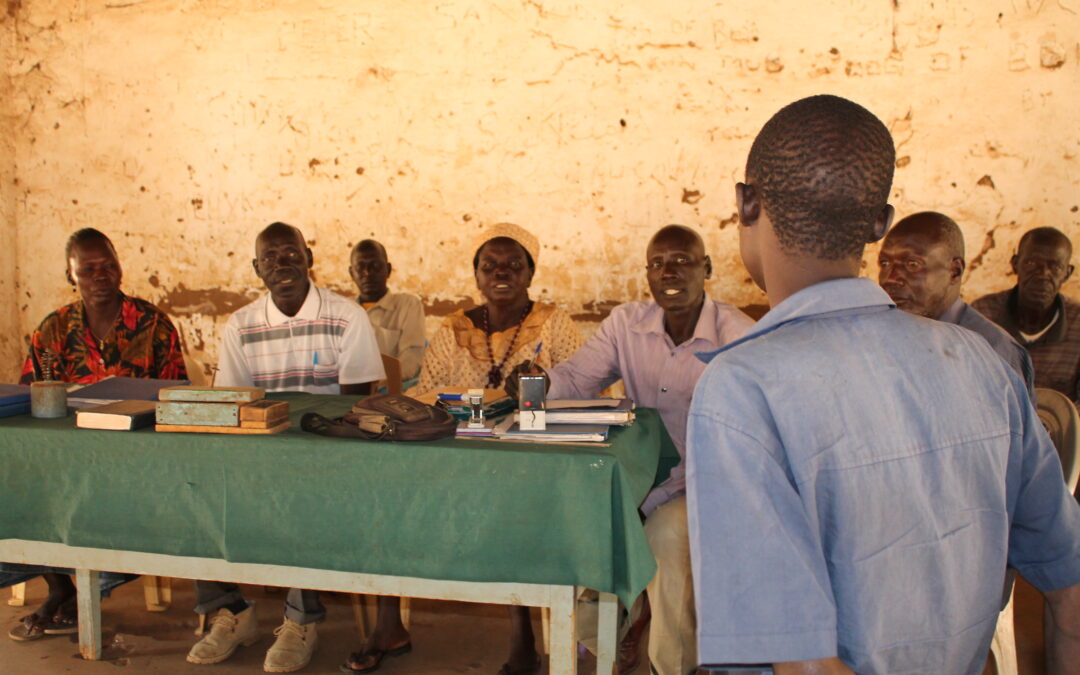
Nov 23, 2017 | Events, News
The 8th Geneva Forum brought together judges, lawyers, and other legal experts from around the world, and relevant UN representatives, to discuss the relationship between traditional and customary justice systems and international human rights, access to justice, and the rule of law.
The potential for improving access to justice
In many countries the majority of legal disputes, especially in rural areas, are resolved by traditional and customary justice systems that are not necessarily recognised by national law as a part of the official court system. The role of traditional and customary justice systems is therefore a key question for realization of “access to justice for all” and “effective, accountable and inclusive institutions” under Sustainable Development Goal 16.
Traditional and customary justice systems are often more practically and culturally accessible to local populations than is the official court system, and may be seen by local people as having greater legitimacy as well. Indeed, official recognition of the existence of traditional and customary courts in a country can be a positive reflection of the international human rights of ethnic, religious or linguistic minorities, or the particular rights of indigenous peoples, or cultural rights more generally.
For marginalized and disadvantaged rural populations in developing countries, traditional and customary courts may in practical terms be the only form of access they have to any kind of justice. Development agencies have increased their engagement with informal justice systems, and are considering much greater investment in capacity-building of such systems, noting their potential to reach large portions of the population who face significant obstacles to realizing access to justice in the official justice system.
The risks for human rights, particularly of women and children
At the same time, the composition, procedures, and outcomes of traditional and customary justice system mechanisms and processes can conflict with the human rights protections contained in international law and standards on human rights and the rule of law.
One key concern is in relation to the rights of women and children. Traditional and customary justice systems may be rooted in patriarchal systems and, as such, can reinforce harmful gender stereotypes and cultural assumptions that are inherently likely to discriminate against women and children and therefore negatively impact upon their rights.
Other concerns include consistency with the right to a competent, independent and impartial tribunal established by law; respect for fundamental guarantees of fairness comprising the right to fair trial; accountability of judicial decision-makers in relation to corruption and other misconduct; and non-discrimination and equality before the law more generally.
Aims of the 2017 Geneva Forum
The discussions at the 2017 Geneva Forum (22-23 November 2017), together with ICJ’s broader global experience and expertise, will provide a foundation for the development by ICJ of legal, policy and practical guidance, including conclusions and recommendations on the role of traditional and customary courts in relation to access to justice, human rights and the rule of law.
The ICJ guidance will take into account the many variations and differences between different traditional and customary courts that exist around the world, while seeking to articulate conclusions and recommendations sufficiently universal to be applicable across the widest possible range of contexts. The focus of the Geneva Forum and the ICJ guidance is intended to be on traditional and customary courts of an informal character and, as such, the ICJ does not intend directly to address formal religious courts or the application of customary law by ordinary formal courts.
Available for download in PDF format:
Compilation of selected international sources on indigenous and other traditional or customary justice sytems, available here.
Final report of the 2017 Geneva Forum on traditional and customary justice systems, available here:
Universal-Trad Custom Justice Gva Forum-Publications-Thematic reports-2018-ENG
Several video interviews with participants are available to view by clicking here.
Information about the subsequent 2018 Geneva Forum on indigenous and other traditional or customary justice systems in Asia, is available here.
For more information, please contact matt.pollard(a)icj.org.
The 2017 Geneva Forum of Judges & Lawyers was made possible with the support of the Republic and Canton of Geneva, Switzerland.
- Photo: “Traditional leaders preside over a case in B-Court, Nyang Payam, Torit County, South Sudan”
- Photo Credit: UNDP South Sudan2016Angelique Reid ©2016 United Nations
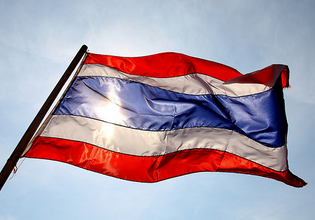
Nov 23, 2017 | News
Today, the ICJ and Amnesty International submitted recommendations to the Ministry of Justice that changes be made to a new law under consideration by the Cabinet, in order to bring it in line with Thailand’s international legal obligations.
The submission came in response to a request by the Ministry for feedback on the Draft Prevention and Suppression of Torture and Enforced Disappearances Act (‘Draft Act’).
The ICJ and Amnesty International welcome the Thai government’s commitment to criminalize torture and enforced disappearances.
The Draft Act currently addresses many existing gaps in Thailand’s current legal framework.
However, the organizations consider that further amendments are needed to address significant shortcomings in the Draft Act and ensure Thailand’s compliance with international treaties on torture and enforced disappearance and international standards.
Recommendations by the ICJ and Amnesty International addressed the following concerns:
- The absence within the Draft Act of key elements of the crimes of torture and enforced disappearance, as defined by international law;
- The absence of provisions concerning cruel, inhuman and degrading treatment or punishment (CIDT/P);
- The inadequacy of provisions establishing the inadmissibility of statements and other information obtained by torture, CIDT/P and enforced disappearance as evidence in legal proceedings;
- The inadequacy of provisions relating to modes of liability for crimes described in the Draft Act; and
- The shortcoming of provisions concerning safeguards against torture, CIDT/P and enforced disappearances.
The ICJ and Amnesty International urge Thailand to make it a top priority to address these and other concerns, and once they are addressed, to enact the law as soon as possible.
The urgent need to amend and enact the Draft Act is underscored by several NGO reports documenting the persistent use of torture and other ill-treatment by state security forces and the continued failure of the Thai authorities to hold accountable perpetrators of torture, other ill-treatment and enforced disappearances.
The ICJ and Amnesty International remain committed to providing any necessary assistance to the Thai government in amending the Draft Act or otherwise acting to prevent torture and enforced disappearances in Thailand.
In a letter accompanying the submission, the ICJ and Amnesty International also emphasized the crucial importance of maintaining sections within the current Draft Act providing that the prohibitions on torture and enforced disappearances apply in all circumstances, including states of emergency, and prohibiting the forcible transfer of persons to territories where they would face a real risk of torture or enforced disappearances (refoulement).
Background
Thailand is a state party to the International Covenant on Civil and Political Rights and the Convention against Torture and other Cruel, Inhuman or Degrading Treatment or Punishment, and has signed, but not yet ratified, the International Convention for the Protection of All Persons from Enforced Disappearance.
The UN expert bodies overseeing the implementation of these treaties have consistently called upon states parties to criminalize torture and enforced disappearance as specific crimes.
On 15 November 2016, Thailand replied to a List of Issues, identified by the UN Human Rights Committee’s noting that it was in the process of passing the Draft Act which would “provide clear definition and set up specific offence on torture to be in line with the terms set forth under CAT” and “serve as an implementing legislation for ICPPED.”
It also asserted that the Draft Act “aims to strengthen the prevention, suppression, and prosecution mechanism and to ensure remedy for victims as well as address the problem of misuse, and abuses of power by government authorities with regard to torture and enforced disappearances.”
In February 2017, the National Legislative Assembly (NLA) announced it would not enact the Draft Act, which was produced by the Ministry of Justice in consultation with non-governmental organizations and other civil society actors.
In March 2017, at the UN Human Rights Committee’s review of Thailand’s compliance with the ICCPR, Thailand confirmed that the Draft Act “had been submitted to the National Legislative Assembly, which had requested the Cabinet to further review the bill, with a view to introducing amendments and launching a public consultation process.”
Contact:
Kingsley Abbott, ICJ Senior International Legal Adviser for Southeast Asia, t: +66 94 470 1345 e: kingsley.abbott@icj.org
Read also
Joint Letter to the Thai Government
Download
Thailand-Torture and ED-Advocacy-nonlegal submission-ENG (Submission in English, pdf)
Thailand-Torture ED Bill-News-THA (statement in Thai, pdf)
Thailand-Torture and ED-Advocacy-nonlegal submission-THA (Submission in Thai, pdf)






